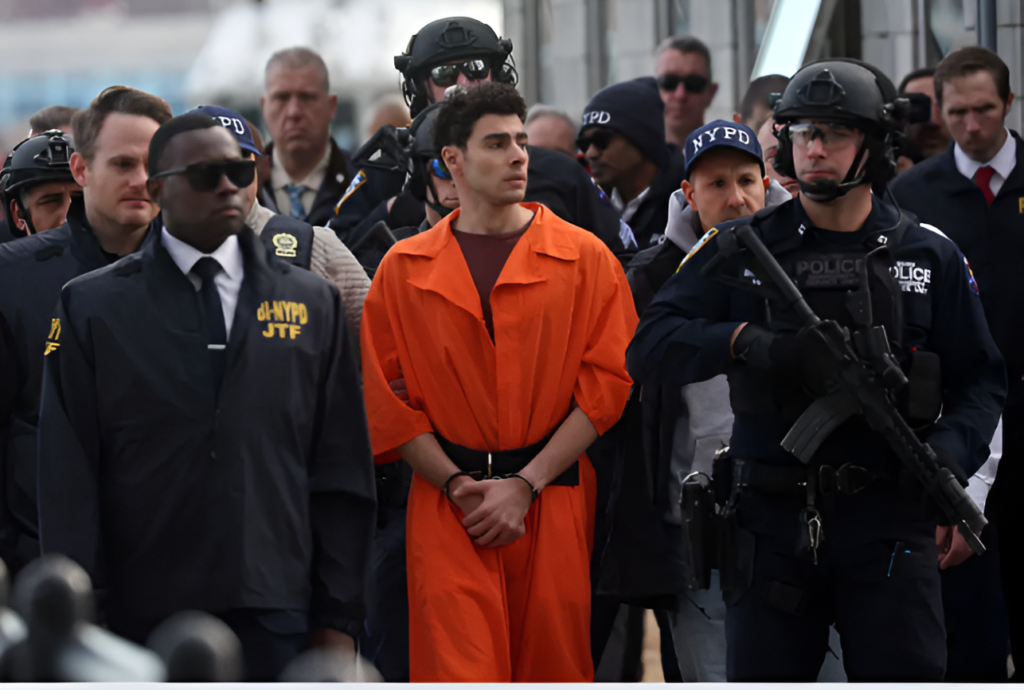
A new poll reveals that most Americans believe health insurance profits and coverage denials played a role in the killing of UnitedHealthcare CEO Brian Thompson, though they still hold the shooter primarily responsible.
The survey, conducted by NORC at the University of Chicago, found that roughly 8 in 10 adults assign “a great deal” or “a moderate amount” of responsibility to the person charged in the Dec. 4 shooting, 26-year-old Luigi Mangione. However, about 7 in 10 Americans also believe that insurance company practices—such as profit-making and coverage denials—bear at least a moderate level of responsibility for the tragic event.
Mangione, who has been charged with Thompson’s murder, has been cast as a controversial figure by some, with public frustration over insurance companies fueling a complicated narrative. Police reported that ammunition found at the scene was marked with words like “delay,” “deny,” and “depose,” reflecting longstanding criticisms of insurers’ alleged tactics to avoid paying claims. UnitedHealthcare clarified that Mangione was not one of its clients.
A National Conversation on Responsibility
The poll indicates widespread awareness of the incident, with about 70% of Americans reporting they had followed the story closely. While the shooter was seen as the primary figure responsible, many respondents attributed blame to broader systemic issues.
About half of those surveyed cited income inequality as a contributing factor. However, fewer people pointed to political divisions or other societal tensions. Younger Americans, particularly those under 30, were the most likely to see the killing as a product of multiple factors, including the health insurance industry’s practices.
For this age group, insurance company profits and coverage denials were viewed as almost equally responsible as the shooter himself. Roughly 7 in 10 young adults attributed “a great deal” or “a moderate amount” of blame to insurance-related factors, while only 4 in 10 said the same of the shooter.
In contrast, older adults were more likely to focus responsibility on the individual who committed the crime. Among those over 60, about 80% said the shooter deserved “a great deal” of blame.
Frustrations with Health Insurance Reach a Boiling Point
The killing has reignited debates over the U.S. health care system, where coverage denials and high profits often draw criticism. Patients and doctors frequently voice concerns about insurers’ interference in care, particularly for life-threatening illnesses like cancer or ALS.
UnitedHealthcare, one of the largest health insurers in the U.S., reported over $16 billion in profits last year on $281 billion in revenue. The company claims that 90% of medical claims are paid upon submission and that prior authorizations—which some patients and providers criticize as barriers to care—affect less than 2% of its customers annually.
Still, frustrations persist. About 3 in 10 Americans say they or someone close to them faced issues with their health insurance in the past year, including problems with claim denials, finding in-network providers, or getting pre-approval for necessary care. Such issues are most common among those under 60, the poll found.
UnitedHealthcare has defended prior authorizations as a way to reduce waste and provide clarity about coverage before care is delivered.
The Role of Media and Public Sentiment
Young Americans are more likely than older adults to blame media coverage for amplifying the tensions surrounding the killing. Over half of those under 30 said the media bears some responsibility, compared to about one-third of older respondents.
Adding to the debate, the poll found that young adults were also the least likely age group to have health insurance, with many citing cost and accessibility as barriers. Most Americans, however, obtain coverage through employer-sponsored plans, individual policies, or government-funded programs like Medicaid and Medicare.
Survey Details
The poll, conducted from Dec. 12-16, 2024, included a representative sample of 1,001 adults nationwide. The margin of error is ±4.2 percentage points.
As the conversation about Thompson’s death continues, the incident serves as a stark reminder of the complexities and frustrations inherent in the U.S. health care system, as well as the lingering divisions over who should bear the blame for such tragedies.

